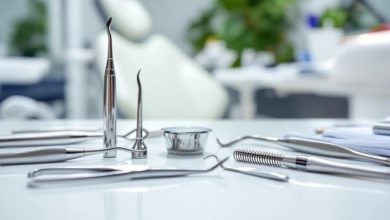Reproductive health refers to the health of male and female reproductive parts throughout their lives. Reproductive organs, ovaries in females, and testicles in males take care of their reproductive health.
A woman’s reproductive health should never be compromised, as her reproductive health is a huge part of her overall health. Many times women are unaware of the threats that can be caused due to poor reproductive health.
Ignoring your reproductive health can result in major issues like infertility, menstrual problems, PCOD/PCOS, pregnancy issues, and cervical cancer. Prevent yourself from going through this and visit your doctor regularly and ask him questions about your reproductive health. Asking these questions can help you in the future.

10 Questions to Ask your healthcare provider About Your Reproductive Health
The reproductive health of a woman as well as men must be protected at any cost. Ask these important questions to your doctor and be aware of any serious issues beforehand.
- How often should I do screenings?
Preventive medical screenings are very essential to know if there are any possible threats to a woman’s reproductive health. Medical screenings can help in early diagnosis and you can take some preventive measures and have many options for treatment at earlier stages. Asking your doctor this question can help you in many ways, including the risk of cervical cancer.
- Should I get a screening for STIs?
STIs (Sexually Transmitted Infections) are extremely harmful to a woman’s reproductive health and must be treated on time. STIs can be treated but if it goes undetected you may face some serious health issues, or you may pass it to your partner during the sexual activity. If you are sexually active, ask your doctor how often you should get tested for STIs.
- Which birth control method is right for you?
Birth control methods are the contraceptive methods to prevent an unwanted pregnancy. Sudden pregnancy can be a huge shock to any individual. There are several birth control methods available, but not all are suitable for your body and health. Ask your doctor which birth control method would be the best for you based on your lifestyle, medical condition, and medical history.
- How frequently should I get a physical exam?
A physical exam includes a breast exam, pelvic exam, and pap test. A physical exam is essential as it helps in finding out the potential risks of infections and diseases. Women aged 20-29 are more at risk of getting breast cancer, or cervical cancer, so a pap smear once in 3 years or once in a year is highly suggested, it can vary depending on what your doctor says.
- Is my vaginal discharge normal?
A healthy vaginal discharge is clear and white and it has no smell. Ask your doctor if your vaginal discharge is normal, an unhealthy vaginal discharge has a color (yellow or green) and it smells too, this could be a sign of an unhealthy reproductive system. So make sure to ask your doctor this question.
- I get painful periods with heavy bleeding, could it be a sign of endometriosis?
Endometriosis is a disease where a lining of tissues similar to the uterus lining grows outside the uterus, it may cause you severe pain in your pelvic area and reduce your chances of getting pregnant. If you are experiencing painful periods, inform your doctor, they might run some tests and you can start your treatment.
- What may have caused my current condition?
Individuals often forget to ask the ‘why’ of any cause. You visit the doctor, find out you have an infection or a disease and you simply start the treatment your doctor recommends you. But it’s crucial to know the underlying reason why it happened so that you can prevent it from happening the next time.
- Is Heavy Bleeding during my period normal?
If you are someone who needs to change their pads every two hours due to heavy bleeding and sometimes clots, meet your doctor and ask them what the reason is. Heavy blood loss can result in anemia and other serious conditions, so being aware beforehand could be very helpful.
- How often should I get Mammograms?
Mammograms are done to check if you have any chance of getting breast cancer. Early detection can provide you with more treatment options because, in the later stages, there are very few options left. Ask your doctor how often you should get the mammogram done. Regular mammograms are extremely helpful, as they can find out the symptoms of breast cancer as early as 3 years.
- Do I need a cardiac scan?
Any individual must begin their cardiac check at the age of 20, as well as the other tests. Screenings can help with early diagnosis and prevent heart issues. Ask your doctor how frequently you should get the cardiac check-up done, usually, they recommend you to get it regularly.
Read More :




